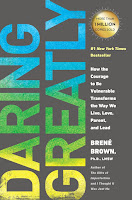How Your "Enemies" will Help You Reach Adepthood
One thing the Buddhist teacher Thubten Chodron tells her students is that their enemies are some of their greatest allies on their spiritual path. Cultivating patience is an essential part of the process for becoming a better Buddhist. To cultivate patience, you have to practice being patient, and you can only practice being patient when there is an opportunity to do so. Your friends don't provide you with opportunities to practice being patient, because they are always kind and respectful towards you. It is only your "enemies" who give you the opportunity to practice being patient. To clarify, I use the word "enemies" to refer to people who annoy, disrespect, or bully you. Anytime someone annoys you, disrespects you, or bullies you, you should recognize that this is an opportunity to practice being patient. That doesn't mean you can't be assertive or stand up for yourself. It just means you should do so without losing your composure or exhibiting anger.

